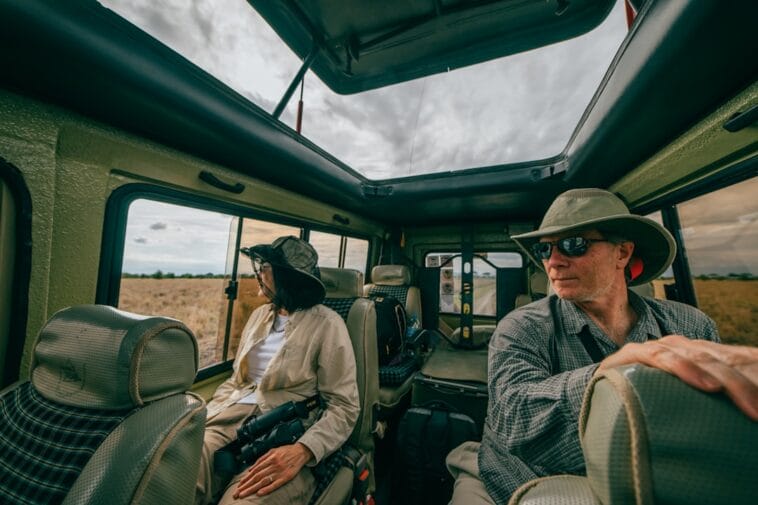Eco-tourism is a form of tourism that focuses on responsible travel to natural areas, with the goal of conserving the environment and improving the well-being of local communities. In Africa, eco-tourism plays a crucial role in promoting sustainable development and protecting the continent’s rich biodiversity. By choosing to engage in eco-tourism activities, travelers can have a positive impact on both the environment and local communities.
Sustainable tourism is particularly important in travel packages“>africa due to its diverse ecosystems and vulnerable wildlife populations. Many African countries rely heavily on tourism as a source of income, and eco-tourism provides an opportunity for these countries to generate revenue while preserving their natural resources. Additionally, eco-tourism can create employment opportunities for local communities, helping to alleviate poverty and improve living standards.
One of the key benefits of eco-tourism is its positive impact on the environment. By promoting responsible travel practices, such as minimizing waste and conserving water and energy, eco-tourism helps to reduce the carbon footprint associated with travel. Furthermore, eco-tourism often supports conservation efforts, such as wildlife protection and habitat restoration, ensuring that future generations can continue to enjoy Africa’s natural wonders.
Planning Your Sustainable Adventure: Choosing the Right Travel Package
When planning an eco-friendly adventure in Africa, it is important to choose a travel package that aligns with sustainable tourism principles. Researching eco-friendly travel companies is a good place to start. Look for companies that prioritize environmental conservation and support local communities through their operations. These companies often have partnerships with local conservation organizations and community development projects.
When selecting a travel package, consider whether the company has any eco-certifications or responsible tourism practices in place. Eco-certifications, such as those provided by organizations like Green Globe or Rainforest Alliance, indicate that the company has met certain environmental and social sustainability standards. Responsible tourism practices may include initiatives such as waste reduction, energy conservation, and support for local businesses.
The Best Time to Travel: Exploring Africa’s Seasons
Africa’s seasons and weather patterns vary across the continent, so it is important to consider the best time to visit for wildlife sightings and outdoor activities. In general, the dry season is a popular time for wildlife viewing, as animals tend to congregate around water sources. This is typically during the winter months in Africa, from May to October. However, the wet season can also offer unique opportunities, such as bird watching and lush landscapes.
Traveling during the low season can have several benefits. Firstly, it helps to reduce the environmental impact of tourism by spreading out visitor numbers throughout the year. This can help to alleviate pressure on fragile ecosystems and reduce overcrowding in popular tourist destinations. Additionally, traveling during the low season often means lower prices and fewer crowds, allowing for a more authentic and immersive experience.
Discovering Africa’s Natural Wonders: A Safari Adventure
| Location | Duration | Price | Accommodation | Activities |
|---|---|---|---|---|
| Tanzania, Kenya, South Africa | 10 days | Starting from 3,500 | Luxury lodges and tented camps | Game drives, walking safaris, cultural visits |
A safari adventure is often at the top of travelers’ lists when visiting Africa. The continent is home to some of the world’s most iconic wildlife destinations, such as the Serengeti in Tanzania and Kruger National Park in South Africa. When embarking on a safari, it is important to practice responsible wildlife viewing to minimize disturbance to animals and their habitats.
Responsible wildlife viewing involves following guidelines set by park authorities and experienced guides. This may include staying on designated paths or roads, keeping a safe distance from animals, and refraining from feeding or touching them. It is also important to respect the natural environment by not littering or damaging vegetation.
Supporting conservation efforts through responsible tourism practices is another way to make a positive impact during a safari adventure. Many safari lodges and tour operators have partnerships with local conservation organizations, and a portion of their revenue goes towards conservation initiatives. By choosing to stay at these lodges or book tours with responsible operators, travelers can contribute directly to wildlife conservation.
Exploring Africa’s Cultural Heritage: Visiting Local Communities
In addition to its natural wonders, Africa is also rich in cultural heritage. Cultural tourism provides an opportunity to learn about the traditions, customs, and way of life of local communities. It is important to approach cultural tourism with respect and a desire to learn, rather than as a form of entertainment.
When visiting local communities, it is important to support responsible tourism practices. This may include hiring local guides or staying in locally-owned accommodations. It is also important to be mindful of cultural norms and traditions, such as dress codes or restrictions on photography. Engaging in respectful cultural interactions can help to foster mutual understanding and appreciation.
Sustainable Accommodation: Choosing Eco-Friendly Lodges

Choosing eco-friendly lodges is another way to support sustainable tourism in Africa. Many lodges have implemented environmentally-friendly practices, such as using renewable energy sources, conserving water, and minimizing waste. These lodges often have a smaller ecological footprint compared to traditional accommodations.
Staying in eco-lodges not only reduces your environmental impact but also supports local communities. Many eco-lodges prioritize hiring staff from nearby communities and sourcing food and supplies locally. By choosing to stay at these lodges, you are directly contributing to the economic development of local communities.
When choosing sustainable accommodation options, look for certifications such as Green Key or Eco-label, which indicate that the lodge has met certain environmental standards. Additionally, consider the lodge’s commitment to responsible tourism practices, such as waste management and community engagement.
Wildlife Conservation: Supporting Local Conservation Efforts
Africa is home to some of the world’s most iconic wildlife species, but many of them are facing threats such as habitat loss and poaching. Supporting local conservation efforts is crucial for protecting these species and their habitats.
Many conservation organizations in Africa rely on funding from tourism to carry out their work. By choosing to visit protected areas and national parks, you are directly contributing to these conservation efforts. Additionally, some lodges and tour operators offer opportunities for travelers to get involved in conservation activities, such as wildlife monitoring or habitat restoration.
Responsible Travel: Minimizing Your Environmental Impact
Responsible travel involves minimizing your environmental impact while traveling. There are several ways to achieve this, starting with reducing your carbon footprint. Consider offsetting your carbon emissions by investing in projects that reduce greenhouse gas emissions, such as reforestation or renewable energy initiatives.
Responsible waste management is another important aspect of sustainable travel. Avoid single-use plastics and dispose of waste properly, following local recycling or composting guidelines. It is also important to conserve water and energy by taking shorter showers, turning off lights and air conditioning when not in use, and reusing towels and linens.
Supporting sustainable transportation options is another way to reduce your environmental impact. Choose public transportation or shared transportation services whenever possible, and opt for walking or cycling for short distances. If you need to rent a car, consider choosing a fuel-efficient or electric vehicle.
Adventure Activities: Hiking, Biking, and Kayaking in Africa’s Wilderness
Africa offers a wide range of adventure activities for outdoor enthusiasts. From hiking in the mountains to biking through national parks or kayaking along rivers, there are plenty of opportunities to explore the continent’s wilderness.
When engaging in adventure activities, it is important to practice responsible tourism practices. This includes staying on designated trails or paths to minimize damage to vegetation and wildlife habitats. It is also important to follow safety guidelines and regulations set by park authorities or experienced guides.
Minimizing your environmental impact during adventure activities can be achieved by leaving no trace. This means packing out all trash, avoiding littering, and refraining from disturbing wildlife or their habitats. Additionally, consider supporting local communities by hiring local guides or purchasing locally-made products.
Embracing Sustainable Tourism in Africa
In conclusion, eco-tourism plays a crucial role in promoting sustainable development and protecting Africa’s natural and cultural heritage. By choosing to engage in responsible travel practices, travelers can have a positive impact on the environment and local communities.
When planning your sustainable adventure in Africa, research eco-friendly travel companies and choose a travel package that supports sustainable tourism. Consider the best time to travel for wildlife sightings and outdoor activities, and opt for low season travel to reduce environmental impact.
During your trip, practice responsible wildlife viewing, support local communities through cultural tourism, and choose eco-friendly lodges for accommodation. Support local conservation efforts and minimize your environmental impact through responsible waste management and sustainable transportation options.
By embracing sustainable tourism practices, you can contribute to the preservation of Africa’s natural wonders and support the well-being of local communities. Together, we can ensure that future generations can continue to enjoy the beauty and diversity of Africa.
If you’re interested in learning more about ecotourism in Africa, be sure to check out this informative article on AfricanSahara.org. The article titled “Sahara Desertification: Is Man Responsible?” delves into the impact of human activities on the Sahara Desert and how it affects the delicate balance of the ecosystem. It provides valuable insights into the importance of sustainable tourism practices in preserving Africa’s natural wonders. To read more about this fascinating topic, click here.


